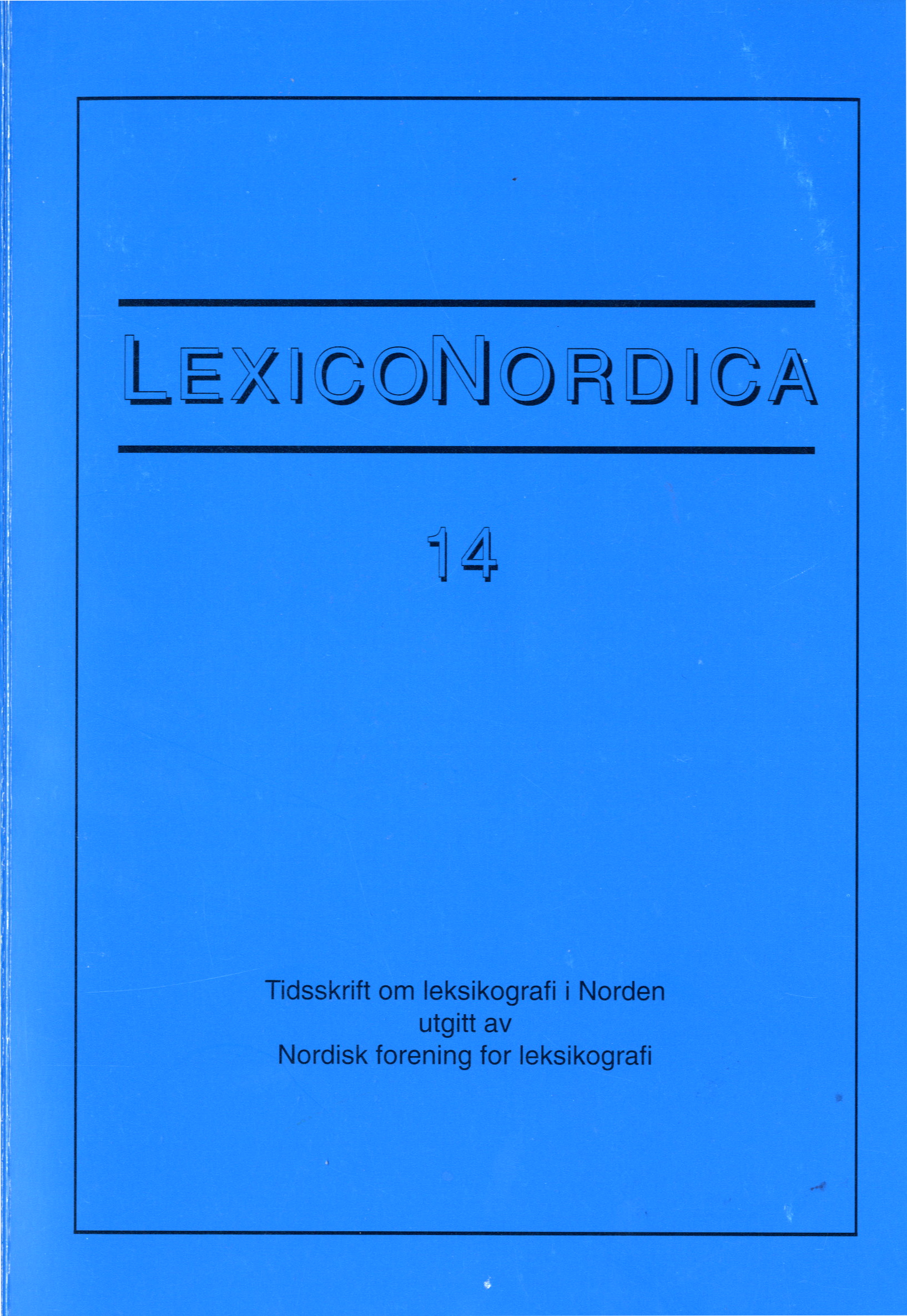Kvaliteten af de leksikografiske definitioner i ordbøger, leksika og encyklopædier
DOI:
https://doi.org/10.7146/ln.v0i14.18533Resumé
The titles of lexicographic tools – dictionary, lexicon or encyclopaedia – are normally
just names given to them by the publishers, although you may point out certain
differences between certain types. At least in the nordic countries the genuine
purpose of a dictionary normally is to be giving help by problems with existing
texts, the so-called communicative problems. A lexicon serves a narrow field
whereas an encyclopaedia serves as a tool for getting knowledge about all fields.
Talking about quality in lexicographic works you may point out the lack of quality
in the sense of counting errors. But from a metalexicographic point of view the errors
are not important. More interesting are those definitions which are correct but
not sufficient. The thesis of our paper is that even if you assume a certain completeness,
you cannot achieve quality without including a) the type of the potential user –
being an expert, a semi-expert or a layman dealing with L1 or L2 – and b) the needs
which the reference work wants to fulfil – helping to solve problems in reception,
text production, translation, or knowledge achievement. Examples from gene technology
and musicology will be given. Our own proposals are based on an Internet
dictionary on musical terms, MUSIKORDBOGEN 2007, which has recently been made
accessible.
Downloads
Publiceret
Citation/Eksport
Nummer
Sektion
Licens
LexicoNordica og forfatterne





